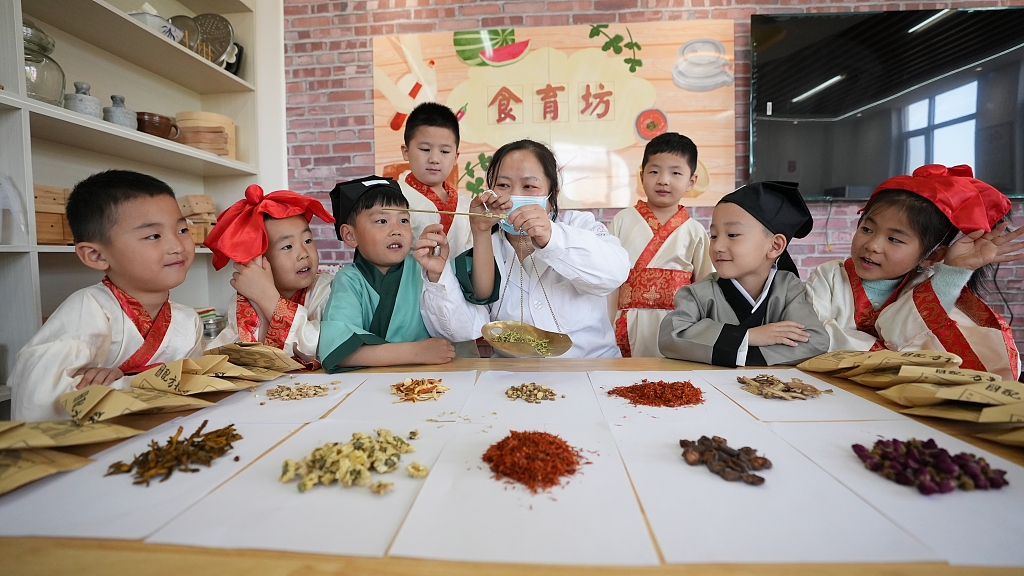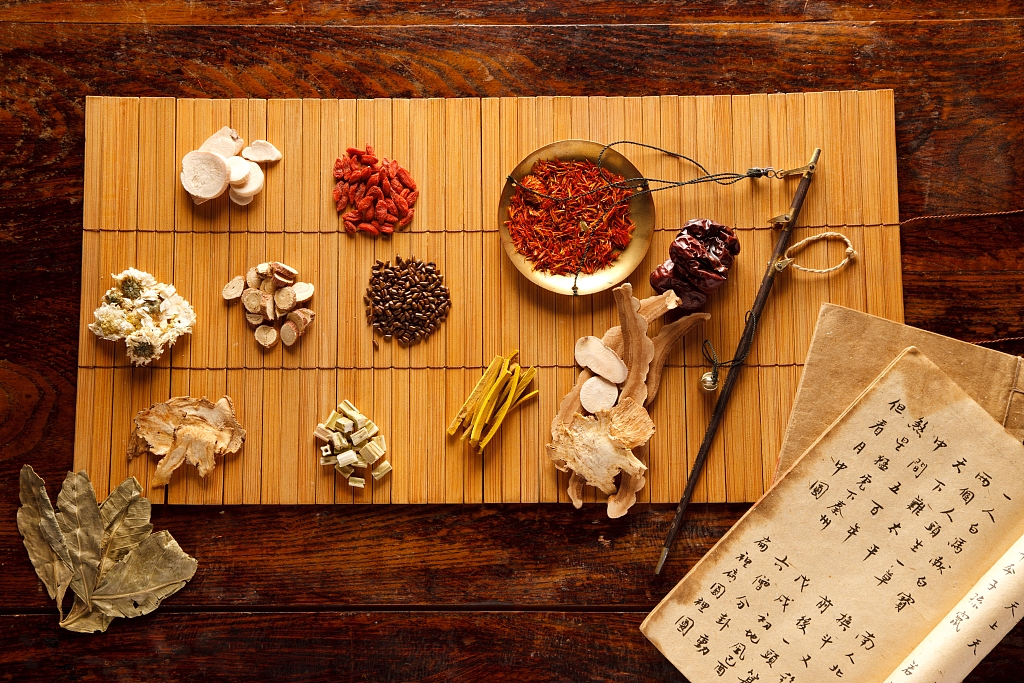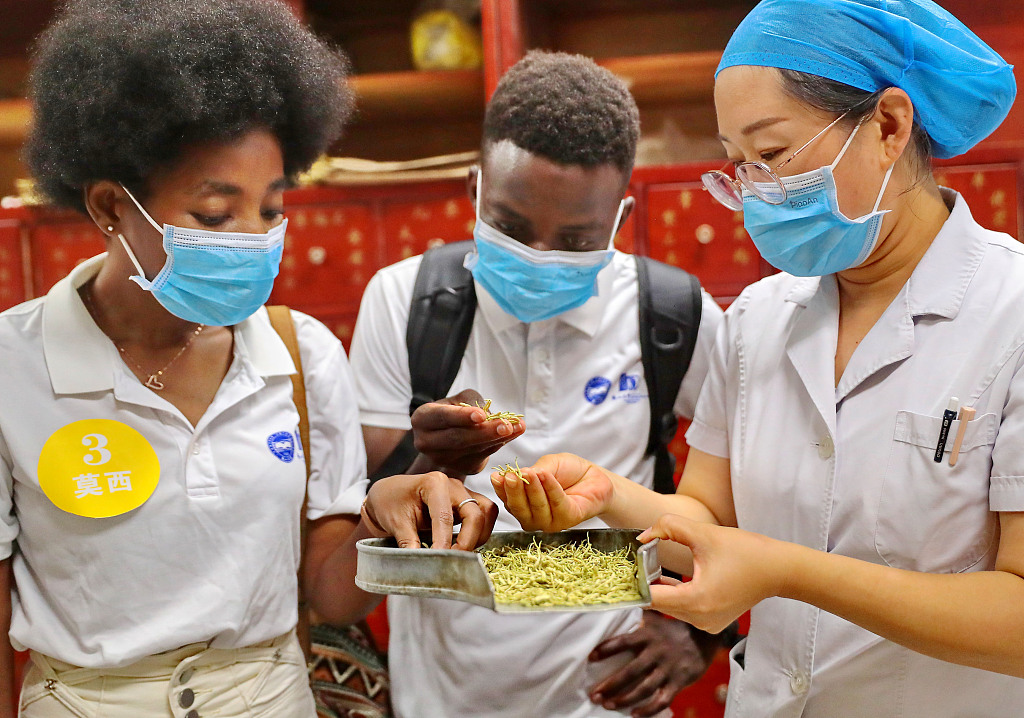Many primary and middle schools as well as colleges and universities across China have introduced herb-planting courses on their campuses, as part of a campaign to promote traditional Chinese medicine (TCM).

A pharmacist teaches children to recognize Chinese herbs at a kindergarten in Xingtai, Hebei Province. /CFP
A pharmacist teaches children to recognize Chinese herbs at a kindergarten in Xingtai, Hebei Province. /CFP
An herb farm has just been opened at Chaotiangong Minzu Primary School in Nanjing, Jiangsu. More than 30 species were planted on campus, including creeping rockfoil, oregano, Chinese ground orchid and rosemary.
Students there are being guided by pharmacists from a provincial TCM hospital, who teach them to recognize the different herbs, learn plant development and medicinal value, make herb sachets, and plant sprouts in the garden.
The hospital also donated over 100 cartoon books related to TCM to help the children develop a stronger interest in herbal medicine.

Some widely used Chinese herbs /CFP
Some widely used Chinese herbs /CFP
In addition to cultivating herbs in its campus garden, Xinhongxing Primary School in Shanghai has introduced TCM courses for students of all grades. These cover a basic knowledge of herbs, herb planting and sketching, and cooking with herbs.
The courses give students more of an in-depth understanding of TCM, instilling into their minds a sense of pride in Chinese traditions and the country's rich culture, said the principal of the school.

Two overseas students from Yanshan University learn about Chinese herbs at a TCM hospital in Qinhuangdao, Hebei. /CFP
Two overseas students from Yanshan University learn about Chinese herbs at a TCM hospital in Qinhuangdao, Hebei. /CFP
Also in Shanghai, Tongji University has created an opportunity for overseas students to plant various species of herbs including Chinese angelica, wolfberry, fish mint and dangshen, which are all widely used in Chinese cuisine.
By taking care of the plants on a rotational basis, overseas students can gain firsthand experience of making herbal medicine from start to finish, and spread TCM culture to their own countries.
March 17 marks Chinese Medicine Day, in commemoration of this time-honored way of caring for people's health. Chinese herbs play an important role in TCM and they are also widely used in Chinese cuisine to boost people's health. They help keep the body well-balanced by nourishing its qi, or the energy force essential for overall health, and jing, or its essence and vitality.
Introducing herb-planting courses at schools not only brings students up close and personal with Chinese herbs but also helps pass on these ancient treatment traditions to younger generations while spreading TCM around the world.